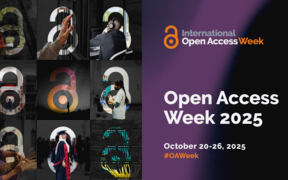Publishing Research Data Alongside Research Articles
Several international publishers have established data policies, for example, Elsevier's Research Data Policy and Springer Nature's Research Data Policy. A critical aspect of these policies is the Data Availability Statement (DAS), which includes information on what data are available, where they can be found, and any applicable access terms.
There are several options for sharing data, with the most common being:
- Data provided as supplementary material.
- Data stored in a trustworthy repository with a persistent identifier.
- Data not shared openly but available upon reasonable request.
The expectation is that there will be a surge in open research data linked to publications, as both funders and major publishers require it. However, research indicates that, for example, less than half of the journals publishing ecological and evolutionary research have a mandated data- or code-sharing policy, with even fewer requiring authors to share data during peer review. Journals appear to have a significant role in increasing data and code availability through their policies (Ivimey-Cook et al., 2025).
A study conducted at the University of Tampere on the use of data availability statements of peer-reviewed scientific articles (published in 2020 – 2021) revealed that approximately 25% of articles included a DAS. Openly accessible articles tend to have more DAS statements and open data than paywalled articles. Besides archives, data is often stored alongside the article. Many researchers store data themselves and promise to share it upon "reasonable request." (Toikko and Kylmälä, 2023).
Glerean (2025) discusses a few common reasons researchers give for not openly sharing data:
- Privacy, ethics, safety: These blockers are often mentioned being out of researchers' control, such as ethics committee restrictions.
- Losing competitive advantage/being scooped: Researchers may avoid publishing data because they are still analyzing it.
- Data ownership: While researchers may control data, it's typically owned by their research organization.
- Data size and storage cost: Storing datasets indefinitely involves costs.
- Data preparation efforts (technical, legal, ethical): Opening and managing datasets requires substantial work by experts.
These barriers commonly result in the statement "data available on reasonable request."
According to Glerean (2025), data appraisal should become an essential element explicitly discussed during the planning stage of research. Unique data with high reusability and potential policy impact should always be made open while data that are very difficult or costly to open should be possible to keep local.
- Glearean, E. (2025) Data available on unreasonable request. Blockers in data opening and possible solutions. Unpublished presentation. Glerean_2025_Data_available_on_unreasonable_request.pdf - Google Drive
- Ivimey-Cook E.,R. et al. (2025) From policy to practice: progress towards data- and code-sharing in ecology and evolution. Proceedings of the Royal Society B, 292 (2055) https://royalsocietypublishing.org/doi/full/10.1098/rspb.2025.1394
- Toikko, T., & Kylmälä, K. (2023). Tutkimusdatan saatavuustiedot tieteellisissä artikkeleissa: Raportti Data Availability Statementien käytöstä Tampereen yliopistossa. Informaatiotutkimus, 42(1-2), 31–50. https://doi.org/10.23978/inf.126098
This article was inspired by presentations at an event organized by Open Science Coordination titled "Publishing Data in Connection with a Research Article." More details about the program and presented material can be found at Vertaistukitilaisuus: datan julkaiseminen tutkimusartikkelien yhteydessä.
Contact
Please contact Open Science and ACRIS team at acris@aalto.fi. We are happy to help researchers with any questions related to open access publishing.
International Open Access Week 2025 is held 20-26 October. During the week, we publish brief, theme-related news at aalto.fi.
International Open Access Week 2025
International Open Access Week will be held 20 – 26 October. Check Aalto’s programme!

Read more news

Significant donation to boost pavement engineering research and education
Companies and associations in the field have donated €400,000 to the School of Engineering.
‘Mesoscale’ swimmers could pave way for drug delivery robots inside the body
Researchers have discovered how tiny organisms break the laws of physics to swim faster — such secrets of mesoscale physics and fluid dynamics can offer entirely new pathways for engineering and medicine.
Design strengthens industrial competitiveness – human-centered factory work at the core
Factory work is undergoing a transformation: new technologies and artificial intelligence are changing the content and roles of work. Aalto University’s Department of Design is studying this change from a human-centered perspective in the HiFive project.






